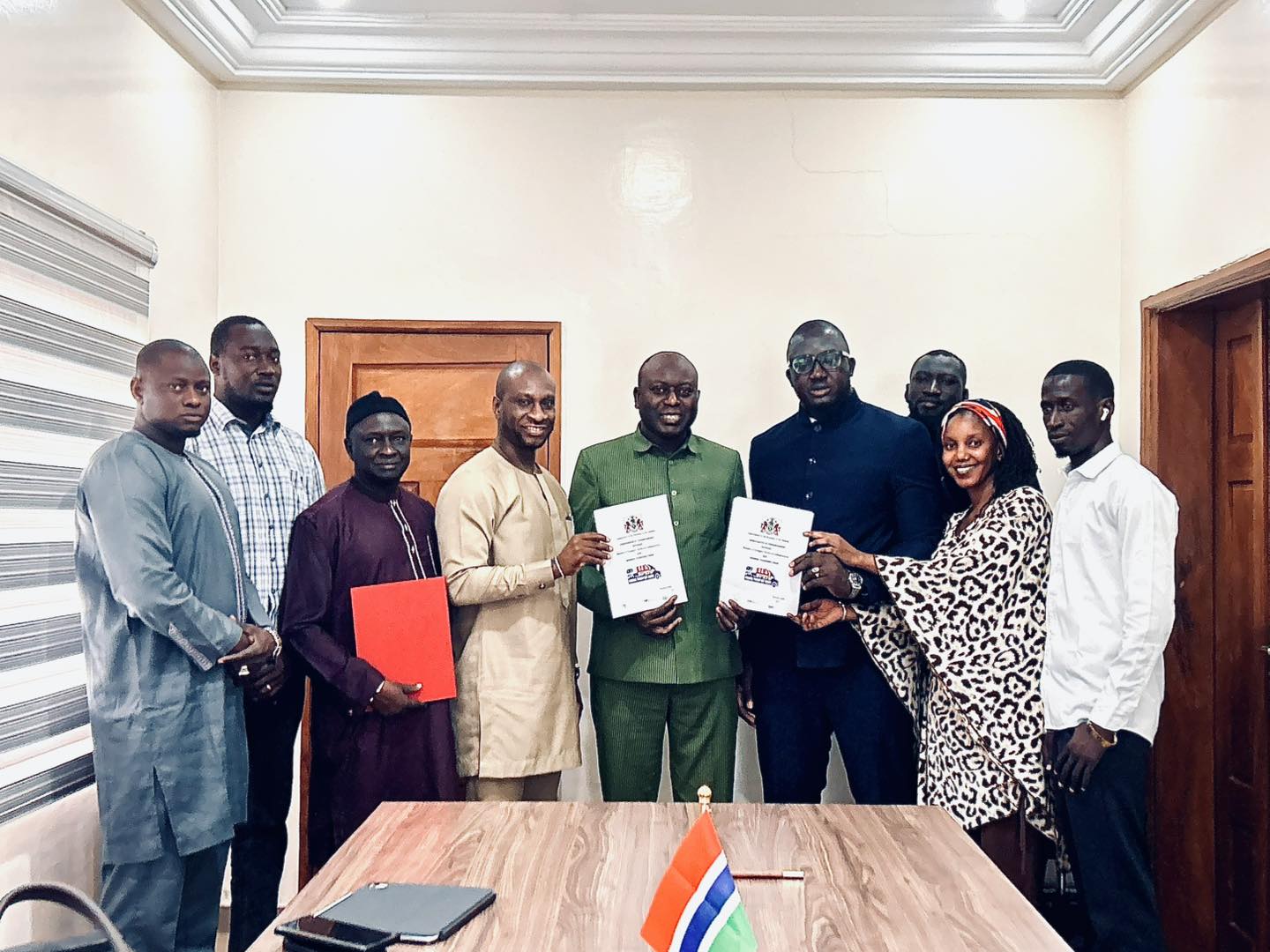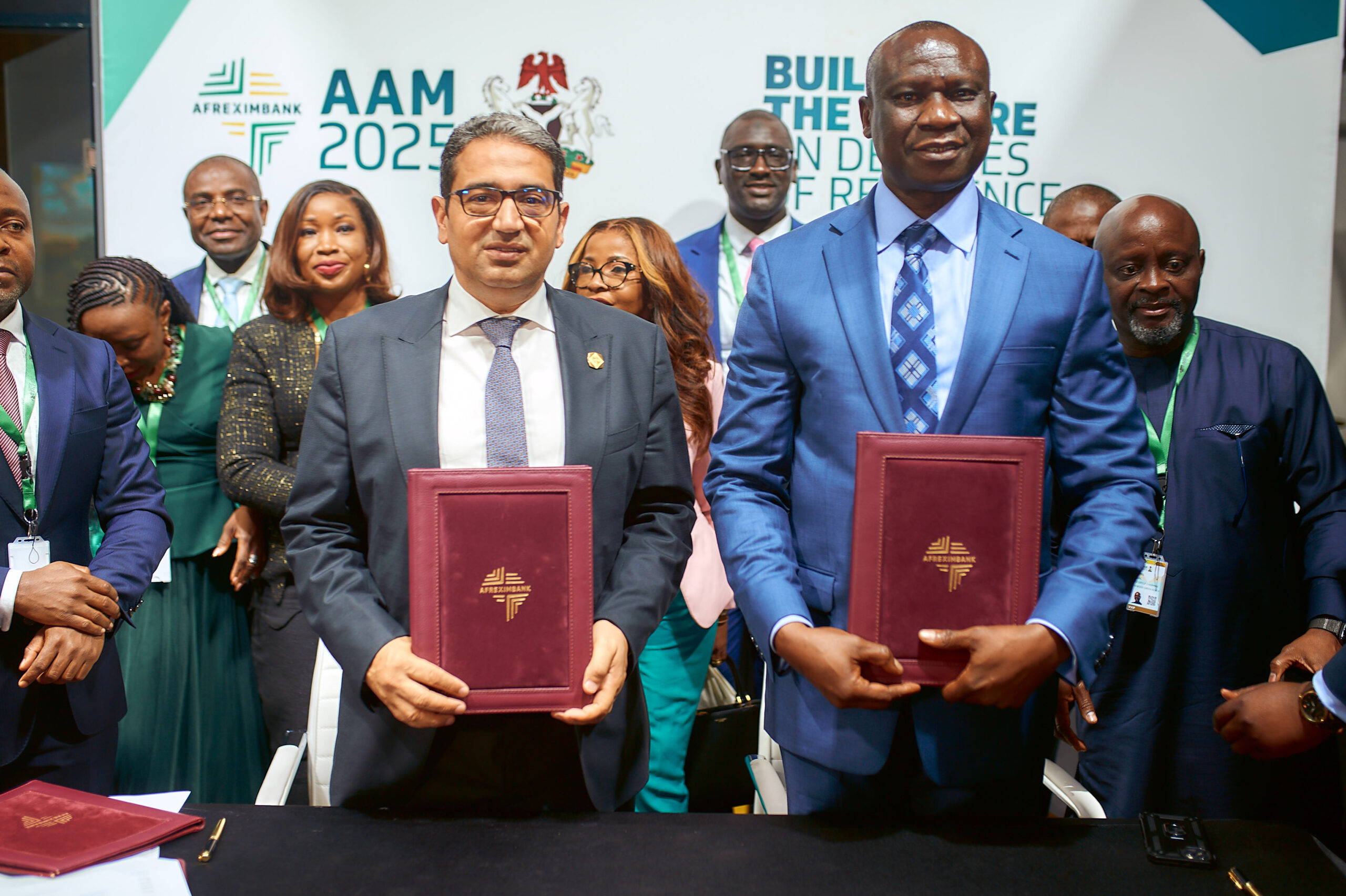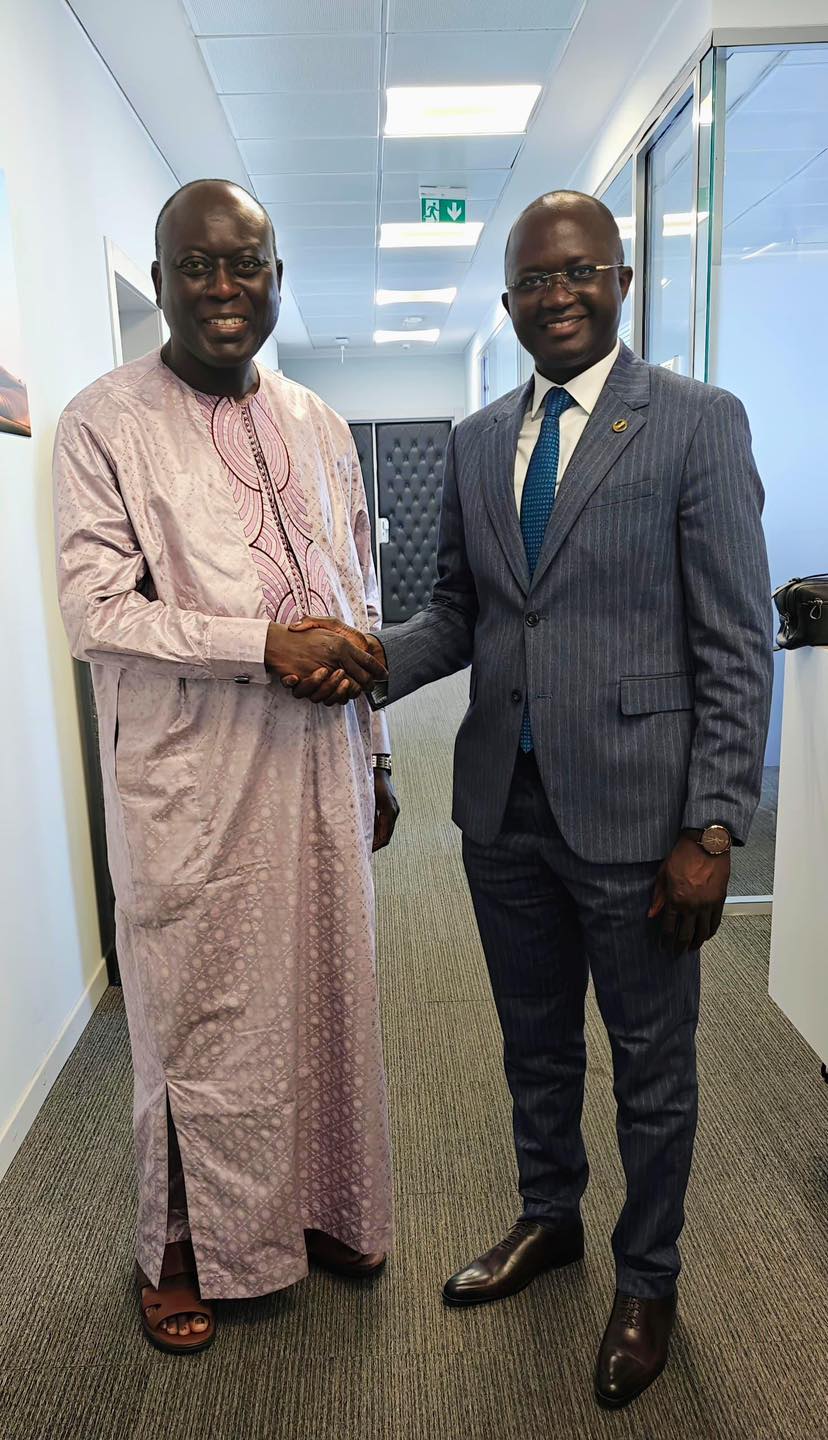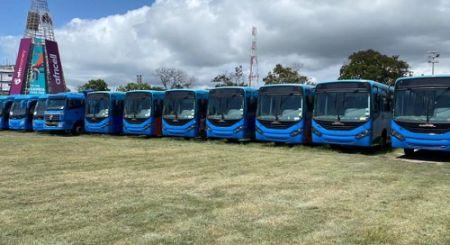By Carlos Kpodiefin
The Gambian transport and logistics sector is set for a significant overhaul following a key agreement designed to professionalize and stabilize road transport. The Ministry of Transport, Works, and Infrastructure (MoTWI) and the General Transport Union (GTU) formally signed a Memorandum of Understanding (MoU) on Monday, October 10th.
This MoU establishes a formal framework for cooperation, coordination, regulation, safety, and efficiency across the nation’s vital road transport sector, signaling a strong governmental commitment to addressing long-standing industry challenges.
A New Era of Collaboration and Governance
The agreement is being hailed as a pivotal moment, shifting the relationship between the government and transport operators from reactive to proactive.
Ebrima Sillah, Minister of Transport, Works, and Infrastructure, emphasized the strategic importance of this new partnership:
“The signing of this MoU marks a significant step in the relationship between the Ministry and the GTU, demonstrating our commitment to working together to address challenges in the transport sector.”
The MoU officially establishes a Joint Technical Working Committee to oversee its implementation, ensuring the GTU, as a key stakeholder, is directly involved in policy application. Ebrima Colley, signing on behalf of MoTWI, underscored the importance of working collaboratively with the Union to drive the country’s transportation agenda forward.
Key Policy and Infrastructure Commitments
Crucially, the government’s actions are already underway, demonstrating commitment beyond the signing ceremony. Minister Sillah revealed that MoTWI has begun implementing recommendations submitted by the GTU, with several major policy initiatives in motion:
- Addressing Foreign Vehicle Issues: Measures are being implemented to better regulate foreign vehicles operating within the Gambian territory, a necessary step for harmonizing regional trade and ensuring fair competition for local operators.
- Road Maintenance Policy: A comprehensive Road Maintenance Policy is under development, and a dedicated road maintenance company has been engaged. This focus on upkeep is vital for reducing vehicle wear-and-tear and improving logistical efficiency along key corridors.
- Legislative Modernization: The Ministry is actively preparing a Cabinet Paper for the Road Transport Bill 2025, indicating an imminent legal restructuring of the sector to match infrastructure ambitions.
The GTU President, Omar Ceesay, acknowledged the positive shift, commending the government’s efforts and the significant achievements made since 2017. He stressed the role of collaboration in achieving national development goals.
Broader Implications for West African Logistics
For the wider African logistics community, this MoU is an example of inclusive governance. The agreement is expected to:
- Enhance Corridor Safety: By standardizing practices and enforcing clearer regulations, the MoU will make The Gambia a safer transit route.
- Improve Efficiency: Better coordination and infrastructure maintenance will directly lead to faster turnaround times and lower operating costs, a crucial factor on the heavily utilized Dakar-Banjul corridor.
- Support Economic Growth: By creating a more predictable and regulated road transport environment, the country strengthens its role as a key logistics hub in the sub-region, contributing directly to The Gambia’s overall economic development.
The Gambia is leveraging partnership to ensure its foundational road sector can support its growing role in regional trade and its ambitious port and infrastructure expansion plans.






